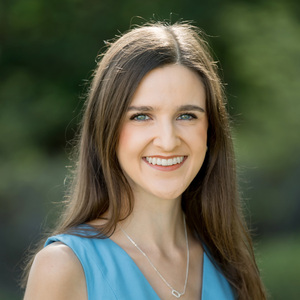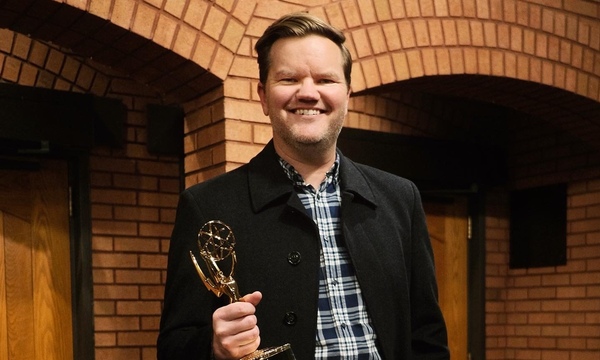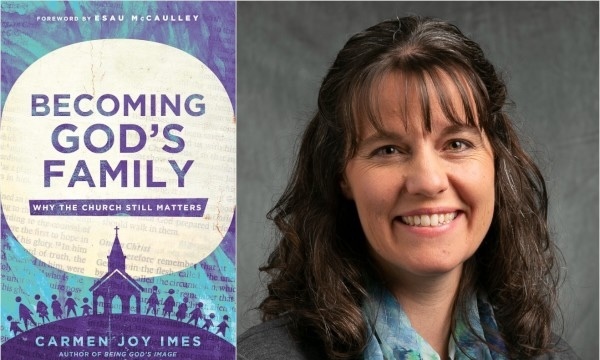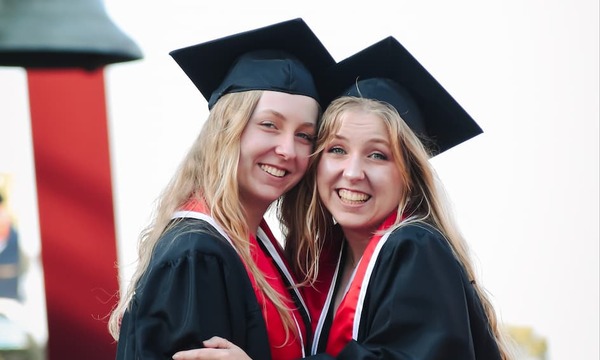“The American evangelical church is becoming increasingly more ethnically diverse and this diversification is not always perceived as a blessing,” according to Dr. Itzel Reyes, Biola University associate professor of modern languages. Reyes is a scholar-in-residence with the nonprofit organization World Outspoken.
As a scholar-in-residence, Reyes serves as a translator, or a “bridge,” that connects academic knowledge to “real-world” issues affecting the modern, mestizo church. The nonprofit is preparing mestizo, or mixed, churches for cultural change in their congregations, communities and cities. Through training, content and partnerships, World Outspoken defines and promotes ministry methods for this new world, and Reyes is working toward that goal by writing articles and developing curriculum.
Here, Reyes shared about some of the work she is doing with the nonprofit and how it is impacting her life and her teaching.
Why is the work you are doing with World Outspoken important for the church today?
The American evangelical church is becoming increasingly more ethnically diverse and this diversification is not always perceived as a blessing. Some individuals believe that cultural diversity should not matter because we are all one under God, but our creator intentionally designed us to be cultural beings and we should not try to escape or negate this reality. Our culture, ethnic background, gender, location and linguistic proficiencies all shape the way we see God and I think that it is vital that we acknowledge how these experiences impact our relationship with God and with each other. The work that I am involved in at World Outspoken aims to recognize our situatedness as a way to become more loving and accepting of one another through the power of stories, research and practical knowledge.
You published an article on the Spanglish language in September. How do you see the community and more specifically the church developing in its acceptance of linguistically diverse practices?
The Church is not immune to prejudices and erroneous — oftentimes — harmful assumptions and these notions can lead to oppressive practices within our own churches. Even though the United States, as a nation of immigrants, should be a fertile land for different languages to thrive in, the U.S. is actually known as a place where languages come to die. Unfortunately, a monolingual society does not learn well how to be accepting of linguistic diversity. Moreover, when thinking about our identity we seldom consider the language(s) we speak, despite the fact that it is such a crucial part of who we are and how we relate to the world. Spanglish, for example, is a natural expression of biculturalism and bilingualism and when we stigmatize its use, we are really stigmatizing people. So, my hope is that people become more aware of their own linguistic ideologies and I yearn to see more multilingual churches where linguistic diversity is truly celebrated and considered a blessing.
What in your curriculum that you are developing for World Outspoken are you hoping most impacts those who learn from it?
Let me frame my answer by saying that I think evangelical spaces have historically not allowed for voices like mine to be heard. I am not saying that voices like mine have not existed, but rather that these voices have not been considered worthy of being listened to. I am a Latina woman, second generation Mexican-American, multilingual, from an under-resourced community. These aspects of myself have shaped my worldview profoundly. It is important to recognize that people have different lenses, based on their experiences, and that all these lenses, rather than threaten the Gospel, help us create a more robust understanding of God.
Do you have a main goal while working as a scholar-in-residence?
My ultimate goal is to use the knowledge God has entrusted me with, for the good of his kingdom. He has given me the great responsibility, and privilege, of teaching hundreds of students throughout the years and once again I am being entrusted to reach a wider community and learn alongside them through the scholar-in-residence program. It is disappointing that some academics are not cognizant of social realities that impact real people. Unfortunately, we are often so immersed in knowledge only comprehensible to a few scholars within our discipline that we become quickly accustomed to the sound of our own voices and lose sight of what is truly important. When Emanuel Padilla, President of World Outspoken, my co-scholar-in-residence, Nathan Cartagena and I gathered to talk about our goals en conjunto (collaboratively), we stressed the importance of grounding our work in the people. We desire to bring academic knowledge into la iglesia local and for the mixed church to also inform and shape scholarly work.
How are you encouraging your students at Biola to be more aware of and more involved in the mestizo church?
At the Spanish 100 level, we are already engaging in conversations about language ideologies, bilingual identities and intercultural relationships. They are being presented with data and statistics but what I often find more powerful and really piques their interest are the personal testimonies. We listen to the stories of children of immigrants who had to translate delicate matters for their parents at a very early age and we listen to the voices of Afro-Latina/os and to the experiences of Latina/os who weren’t taught Spanish because their parents feared discrimination and they listen to each other’s stories as well. In reality, my goal is to prepare my students to thrive in mixed churches. I strongly believe that churches that do not adapt to the changing demographics that point toward a more racially diverse church, will cease to exist. I heard a colleague a few years ago say, “distance breeds suspicion, proximity breeds empathy.” By drawing my students closer to these stories, I pray that they develop the empathy necessary to love one another in a Christ-like way.
Learn more about Biola’s Modern Languages department.
Written by Sarah Dougher, media relations coordinator; and administrative assistant to the senior director of university communications. For more information, please email media.relations@biola.edu.
 Biola University
Biola University.png)


.jpg)

